In Progress.





Traumatic Brain Injury

This website was created by me, Karen Renee Gomez. . .
ALONE…A Survivor of over 12 TBIs and a TBI advocate for over 40 years for TBI clients during my legal career as a Paralegal ~ many of the clients didn’t even know they had a brain injury, or they were afraid to tell anyone!
Founded TBI-ID.com in January 2025. Over the past year, I’ve built more than 100 pages of FREE Resources to help individuals and families IDENTIFY & RECOGNIZE TBI symptoms. RESPOND (seek medical attention), then start the Healing Journey to RECOVER from traumatic brain injury (TBI).
If you’d like to support this work, Donations can be made directly through this site. Your contribution helps keep these Resources FREE & accessible for EVERYONE!
![]()
![]()
If my website has helped you or someone you love, please consider supporting my ongoing work to keep it FREE and accessible for EVERYONE.
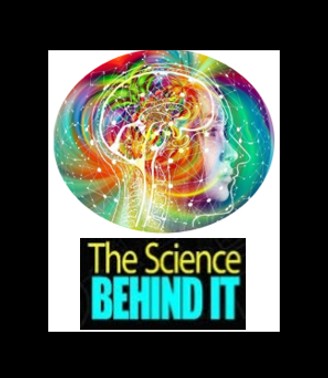
Flint Rehab & Brain Injury Assn of America
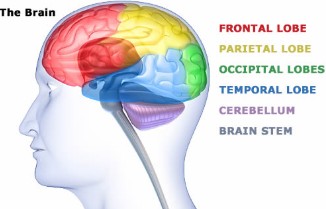
Each region of the brain governs distinct functions, meaning that the site of an injury directly influences the challenges an individual may face and the self-rehabilitation therapies that can aid their recovery.
By exploring how symptoms and therapies align with specific brain regions, this section provides invaluable insights to empower individuals on their journey to healing.
READ MORE
Read More: Symptoms from Other Lobe Injuries
learn morePuzzles and Games, Learn New Skills, Art Therapy: Mentally stimulating activities like crosswords, logic puzzles, board games, or card games to keep the frontal lobe active and improve cognitive functions such as problem-solving and decision-making.
[You’ll find the Therapy for Symptoms List AND the Alphabetical List below.]
7 Simple Brain Exercises (in less than a minute!): Discover 7 unique and powerful brain exercises that will sharpen your mind, boost creativity, and heighten focus—all backed by cognitive principles you’ve likely never tried. (0:55)
Boost Brain Power with Neuro Yoga – in One Minute | Improve Mental Clarity & Focus | Yoga Shakti (1:00)
Recharge Your Brain ~ in 13 Seconds!
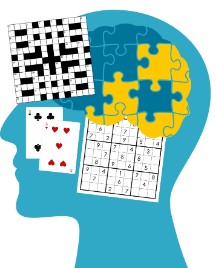


ENERGY BOOSTING
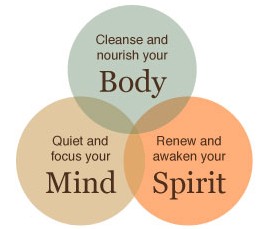
HOLISTIC HEALING




This page is Under Construction, but the information is too important to NOT share with you now. It will always be a work-in-progress! We are working on navigation and creating more Live Links to YouTube videos and other information.
Thank you for your patience and understanding.


LOCATION! LOCATION! LOCATION!
Specific Lobe Injury = Specific Symptoms
CLICK FOR SYMPTOMS BY LOCATION (Lobe) OF INJURY
Frontal * Parietal * Occipital * Temporal * Cerebellum * Brain Stem

After a TBI, incorporating cardio exercises like walking, swimming, or cycling can improve cardiovascular health, mood, and cognitive function, but should be done safely and under professional guidance, gradually increasing intensity and duration. [1, 2, 3, 4, 5, 6] Here’s a more detailed explanation:
Visit our SHOP page, and our BEST APPS/PRODUCTS page for links to TBI Recovery Books, TBI Apps and Products directly from company websites, as well from Amazon. As an Amazon affiliate, I may receive a small fee.
Harness the power of physical therapy to restore your body’s strength and mobility. Discover personalized exercises and treatments designed to promote healing, reduce pain, and enhance your overall physical well-being.
Physical Therapy: Engage in exercises to improve balance, coordination, and strength. Regular physical activity, such as walking, swimming, or yoga, can help improve coordination and strength. Exercise also promotes overall brain health and reduces the risk of secondary complications. (1)
Empower yourself with occupational therapy to regain independence and improve your daily life. Explore strategies and activities that support functional skills, enhance your ability to perform daily tasks, and enrich your quality of life.
Occupational Therapy: Practice daily living skills to regain independence. Perform daily tasks and activities to regain independence in everyday life. This therapy focuses on improving the ability to perform activities of daily living. (2)
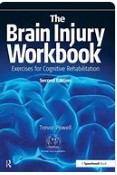
For professionals, caregivers and clients, 140+ cognitive rehabilitation exercises – tailored for memory, thinking skills, executive functions, awareness, insight, & emotional adjustment Click to order on Amazon. (As an Amazon Affiliate, I may receive a small fee.)
The Brad & Bob PTs YouTube channel has a total of 4.6K videos uploaded.
They are well known for their physical therapy advice and tips. ideas
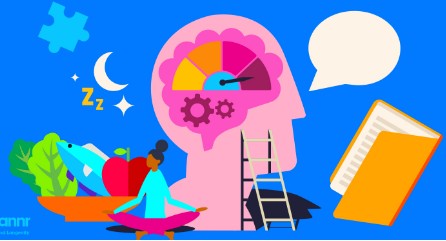
Frontal Lobe Injury causes Cognitive Issues
Even if you can only spend a few minutes at a time…Repetition! Repetition! Repetition! Improves Neuroplasticity!
* Brain Games * Puzzles and Logic Exercises * Memory Training * Reading and Comprehension Exercises * Language Learning * Cognitive Behavioral Therapy (CBT)

Cognitive Exercises
Cognitive rehabilitation exercises are an excellent way to improve and preserve cognitive function after traumatic brain injury (TBI.) These exercises target specific thinking skills and abilities affected by TBI.
Just as your body needs exercise to stay healthy, your brain needs to stay active in order to preserve function. Stimulating your brain through activity causes more neurons to fire, which helps keep your brain operating properly.
After a TBI, it is especially important to exercise your brain so that you can engage neuroplasticity, which is your brain’s natural ability to rewire itself. (Read Article)
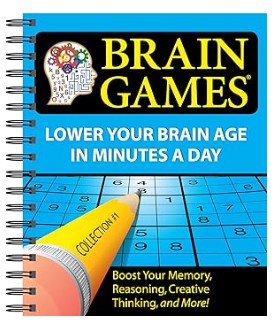
Brain Games & Brain Training for COGNITIVE REHABILITATION!
Recovering from a traumatic brain injury (TBI) is a unique journey, and having the right resources can make all the difference. TBI-ID.com provides 100’s of Resources to help you on your Recovery Journey – essential information, expert connections, and links to innovative products and solutions to support cognitive health. Whether you need guidance on symptoms, rehabilitation strategies, or ways to strengthen mental agility, you can find 100’s of Resources on TBI-ID.com to help you take control of your Recovery Journey!
Cognitive Therapy
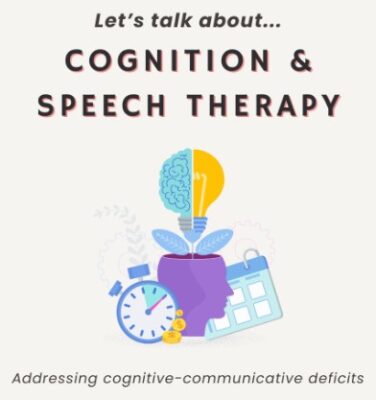
Detailed information on physical, cognitive, and emotional rehabilitation techniques to support your TBI Recovery.
Cognitive Therapy for TBI: NeuroLaunch – Cognitive Therapy for TBI: Effective Recovery Strategies
Cognitive therapy focuses on retraining the brain to compensate for damaged areas and maximize the potential of healthy regions. It involves exercises to improve attention, memory, processing speed, and executive function. Learn more about cognitive therapy here.
Physical Therapy for TBI: Flint Rehab – National Traumatic Brain Injury Association
Physical therapy helps improve strength, balance, and coordination. It includes exercises tailored to the individual’s needs and abilities. Explore physical therapy techniques.
Occupational Therapy for TBI: Johns Hopkins Medicine Resources for Individuals and Family Members Dealing With TBI | Personal Injury Lawyer
Occupational therapy focuses on improving daily living skills and promoting independence. It includes activities that enhance fine motor skills, coordination, and cognitive function. Discover more about occupational therapy.
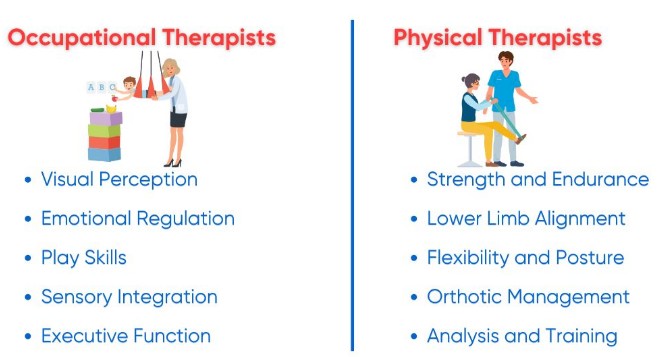
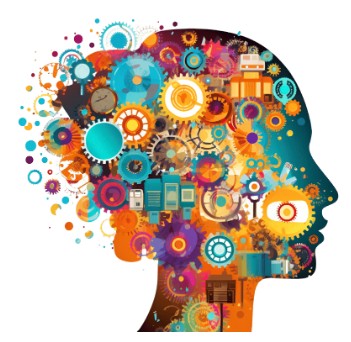
Tailoring COGNITIVE THERAPY Techniques to Specific TBI Symptoms
Just as a master chef selects the perfect ingredients for each dish, skilled cognitive therapists choose specific techniques to address individual TBI symptoms.
For attention and concentration deficits, exercises might include progressively challenging tasks that require sustained focus. It’s like training for a mental marathon, gradually building up stamina and endurance.
Memory improvement strategies often involve a combination of internal and external aids. Internal strategies might include visualization techniques or mnemonic devices, while external aids could be as simple as a well-organized notebook or a smartphone app. The key is finding what works best for each individual.
Executive function training targets higher-level cognitive skills like planning, problem-solving, and decision-making. These exercises often involve real-world scenarios, helping individuals develop strategies they can apply in their daily lives. It’s about equipping them with the tools to navigate the complexities of life post-TBI.
Language and communication interventions are crucial for those experiencing difficulties in this area. These might include exercises to improve word-finding abilities, comprehension tasks, or strategies for effective communication in various social contexts. It’s about rebuilding the bridges of communication that TBI may have damaged.
The importance of early intervention with cognitive therapy for TBI cannot be overstated. The sooner therapy begins, the better the chances of maximizing recovery. It’s like planting a seed – the earlier you start nurturing it, the stronger and more resilient the plant will be.
It’s not just about repairing damaged neural pathways; it’s about forging new ones, opening up possibilities that might have seemed impossible in the immediate aftermath of injury.
The long-term benefits of cognitive therapy in brain injury recovery extend far beyond improved cognitive function. Many individuals report increased independence, better quality of life, and improved relationships. It’s about rebuilding not just cognitive skills, but confidence, self-esteem, and hope for the future.
In the face of traumatic brain injury, cognitive therapy doesn’t just offer hope; it offers a path forward, illuminating the way towards a brighter, more empowered future.
READ MORE (neurolaunch.com) Concussion supportive therapy
Use biofeedback techniques to improve brain function. Train your brain to self-regulate and enhance cognitive performance. Neurofeedback can help retrain the brain to improve cognitive functions and emotional regulation after a TBI.(2)
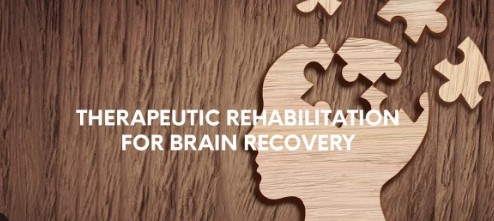
Harness the power of neurofeedback and biofeedback to enhance your mind-body connection and promote self-regulation. Explore cutting-edge techniques that support mental clarity, reduce stress, and improve overall well-being. It’s like “physical therapy” for the Brain! (See video below)
Explore the transformative potential of virtual reality in TBI recovery. Discover how immersive experiences and cutting-edge technology can enhance cognitive function, physical rehabilitation, and overall well-being. Virtual reality offers personalized and engaging therapy sessions, helping patients stay motivated and committed to their recovery journey. Experience the future of rehabilitation with VR’s innovative approach to healing.
Unlocking New Possibilities: The Benefits of Virtual Reality in Working with Traumatic Brain Injury (TBI) Patients (Written by: Liam O’Reilly)
Traumatic Brain Injury (TBI) is a complex condition resulting from a sudden blow or jolt to the head, which disrupts the normal function of the brain. It can lead to a wide range of physical, cognitive, and emotional challenges for patients, making rehabilitation a critical component of recovery. Traditional therapy methods have long been the cornerstone of TBI rehabilitation, but recent advancements in technology are paving the way for innovative approaches. One such advancement is the use of virtual reality (VR) in rehabilitation. This blog explores the numerous benefits of VR in working with TBI patients and how it is revolutionizing their recovery journey. Read More

Flint Rehab
Mindfulness After Brain Injury: How It Helps Recovery
Mindfulness is the practice of staying present in the moment. This means keeping your attention on what is happening right now and not on the future or the past.
Practicing mindfulness after brain injury can help you reduce stress and improve several cognitive abilities. In this article, you’ll learn the science behind mindfulness and meditation. Plus, we’ll show you how mindfulness after brain injury can boost your recovery. Read Article

Mindfulness, Meditation: Practice mindfulness to reduce stress and improve mental clarity. Focus on the present moment to cultivate a sense of calm and awareness. Mindfulness meditation can reduce stress and anxiety, promoting mental clarity and emotional stability during TBI recovery. These practices help TBI survivors manage anxiety and enhance cognitive functions. (2)
Yoga: Incorporate yoga to enhance flexibility, balance, and relaxation. Practice various poses and breathing exercises to promote physical and mental well-being. Yoga can improve physical balance, flexibility, and relaxation, aiding in overall physical and mental recovery from TBI. (1)
READ MOREQigong
Yoga
Nutritional Therapy
Breathing Exercises
Cold Showers
Visit our SHOP page, and our BEST APPS/PRODUCTS page for links to TBI Recovery Books, TBI Apps and Products directly from company websites, as well from Amazon.
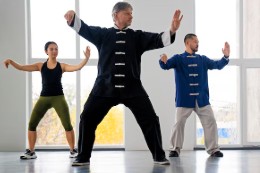
For a little boost of Energy!
Herbal Supplements
Visit our SHOP page, and our BEST APPS/PRODUCTS page for links to TBI Recovery Books, TBI Apps and Products directly from company websites, as well from Amazon.
Visit our SHOP page, and our BEST APPS/PRODUCTS page for links to TBI Recovery Books, TBI Apps and Products directly from company websites, as well from Amazon.
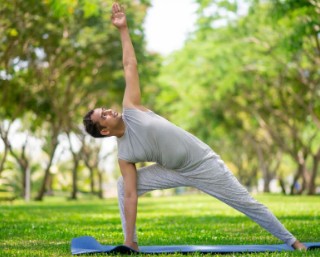
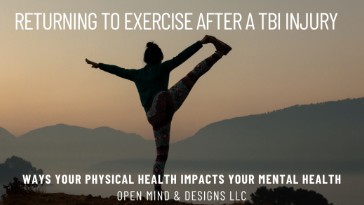
Aerobic Exercise: Engage in cardiovascular activities like walking, swimming, or cycling. Boost your heart health and endurance with regular aerobic workouts. Aerobic exercise can enhance cardiovascular health, boost mood, and improve cognitive function, which are crucial for TBI rehabilitation.(4)
Strength Training: Perform resistance exercises to build muscle strength. Use weights or bodyweight exercises to increase muscle mass and improve overall fitness. Strength training can help rebuild muscle strength and endurance, supporting physical recovery and overall well-being after a TBI.(1)
Balance Exercises: Practice standing on one foot or using a balance board. Enhance your stability and coordination with targeted balance activities. Balance exercises can improve coordination and stability, which are often affected by TBI.(1)


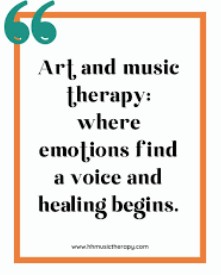
Art therapy provides an outlet for self-expression and emotional healing. Engage in creative activities like drawing, painting, or crafting to enhance cognitive and emotional recovery. Art therapy provides an outlet for self-expression and emotional healing, promoting mental well-being and cognitive function post-TBI. (2)
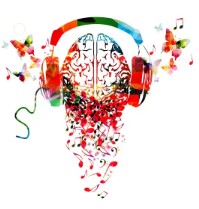
Music Therapy: Listen to and play music to stimulate brain activity and improve mood. Music therapy can enhance cognitive functions and emotional regulation, aiding in the recovery of cognitive abilities and emotional stability after a TBI. (2)

SENSORY STIMULATION
Some brain injuries, particularly those that affect the parietal lobe, can lead to various sensory deficits. Some examples of these problems include numbness, tingling, and difficulty distinguishing between hot and cold sensations.
Fortunately, it is possible to treat these problems through sensory stimulation activities. These activities can help retrain your brain to process different sensations again.
Sensory Stimulation: Use sensory activities to improve sensory processing. Sensory stimulation activities can enhance sensory processing and integration, aiding in the recovery of sensory functions post-TBI. (2)
READ MORE
Engage in social activities to improve communication and social skills, and emotional well-being. Social interaction helps TBI survivors feel connected and supported. Social interaction can help improve communication skills and social engagement, which are often impacted by TBI. (2)
If you’re having difficulties when you’re trying to interact with people, even family and close friends, YOU ARE NOT ALONE. Hang in there. Don’t give up!!!
read more


Follow a balanced diet to support brain health. Nutritional support can provide essential nutrients that promote brain health and aid in the recovery process after a TBI. Maintain a balanced diet rich in omega-3 fatty acids, antioxidants, and vitamins to support brain health. Proper nutrition aids in the healing process and improves overall well-being. (2)
Nutritional Counseling: Consult a nutritionist for personalized dietary recommendations. Nutritional counseling helps TBI survivors maintain a balanced diet for optimal brain health, supporting overall recovery.
Nutrition May Play a Key Role in Supporting Brain Health for TBI

Establish a regular sleep routine to improve sleep quality. Good sleep hygiene can improve sleep quality, which is vital for cognitive function and overall recovery from TBI. (2)
READ MORE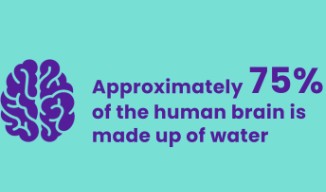
Drink plenty of water to stay hydrated and support brain function. Staying hydrated is crucial for maintaining optimal brain function and supporting the healing process after a TBI. (2)
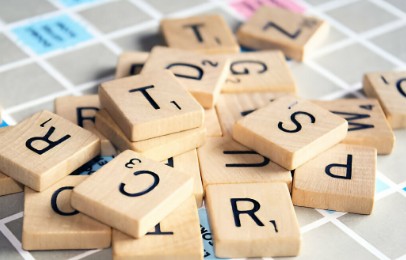
Engage in puzzles, reading, or other mentally stimulating activities. Mental stimulation can enhance cognitive functions and promote neuroplasticity, aiding in the recovery of cognitive abilities post-TBI.(2)
read more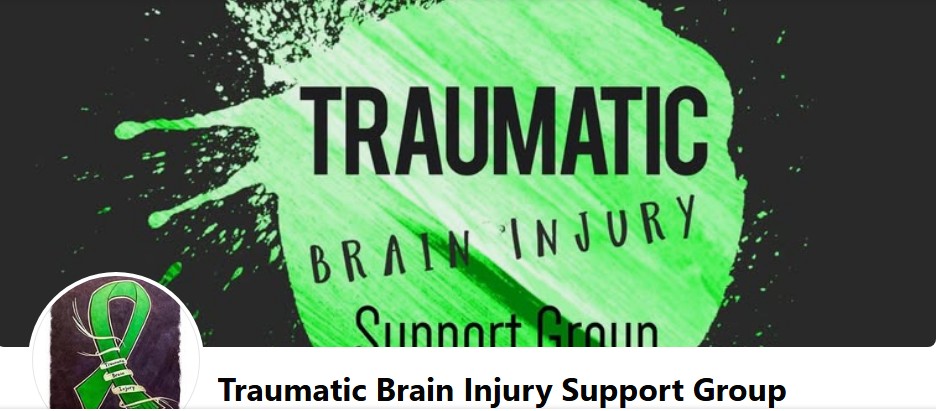
Emotional Support: Seek counseling or support groups to address emotional challenges. Emotional support can help address emotional and psychological challenges, promoting mental health and well-being during TBI recovery. (2)
read more
Goal Setting: Set realistic goals and track progress to stay motivated. Setting realistic goals and tracking progress can provide motivation and a sense of accomplishment, aiding in the overall rehabilitation process after a TBI. (2)
READ MORE
Journal to track progress, express emotions, and improve memory. Journaling helps TBI survivors reflect on their experiences and monitor their recovery, providing a therapeutic way to process emotions and track improvements.

Engage in gardening activities to improve physical coordination and mental relaxation. Gardening provides a therapeutic and calming environment, helping TBI survivors improve motor skills and reduce stress.

Spend time with pets to reduce stress and improve emotional well-being. Interacting with animals can provide comfort and emotional support, promoting emotional healing and reducing anxiety after TBI.

Use essential oils to promote relaxation and reduce anxiety. Aromatherapy can help TBI survivors manage stress and improve mood, creating a calming environment that supports emotional well-being.

Water-based exercises improve physical strength and coordination. Aquatic therapy provides low-impact environment for rehabilitation, helping TBI survivors build strength, improve motor skills.
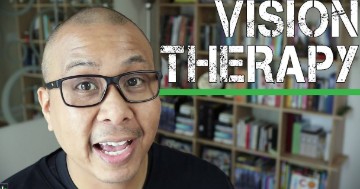
Perform exercises to improve visual processing and coordination. Vision therapy helps TBI survivors address visual impairments and improve visual skills, supporting overall cognitive and sensory recovery.
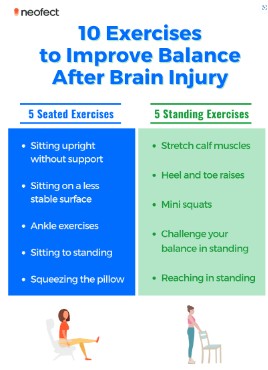
Engage in balance exercises to improve stability and prevent falls. Balance training helps TBI survivors regain physical confidence and reduce the risk of injury, promoting overall physical rehabilitation.

Use acupuncture to reduce pain and improve overall well-being. Acupuncture targets specific points on the body to promote healing and relieve stress, aiding in pain management and overall recovery for TBI survivors
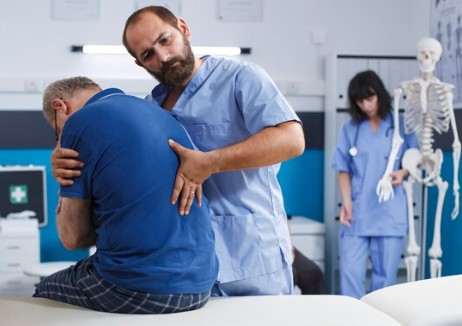
Seek chiropractic adjustments to improve spinal alignment and reduce pain. Chiropractic care can help TBI survivors manage pain, improve physical health, support overall rehabilitation.

Receive regular massages to reduce muscle tension and improve circulation. Massage therapy promotes relaxation and enhances physical recovery, helping TBI survivors alleviate muscle tension and improve blood flow.
Acupuncture Massage Therapy Chiropractic
Aromatherapy Hypnotherapy Biofeedback

Use herbal supplements like ginkgo biloba and turmeric to support brain health. Herbal supplements can provide anti-inflammatory and antioxidant benefits, supporting brain health and recovery after a TBI.
Reiki Reflexology
Ayurveda Homeopathy
Crystal Healing Energy Healing

Explore homeopathic remedies to address specific symptoms and promote overall health. Homeopathy offers natural treatments for various TBI-related issues, providing a holistic approach to symptom management.

Consult a naturopath for personalized natural treatments and lifestyle recommendations. Naturopathy focuses on holistic approaches to health and healing, offering tailored treatments for TBI recovery.

Reiki is a spiritual practice that uses hands-on healing techniques to balance energy points in the body. Reiki is a form of energy healing that can help TBI survivors manage stress and improve well-being, promoting emotional and physical healing. Practice Reiki to promote relaxation and energy balance.

Mind-Body Techniques
Practice techniques like guided imagery and progressive muscle relaxation to reduce stress and improve mental health. Mind-body techniques help TBI survivors achieve emotional balance and relaxation, supporting overall well-being.
Ayurveda, an ancient form of Indian medicine, highlights the importance of the body, mind, and spirit cooperating to support general health and wellbeing. This traditional approach offers wise counsel and helpful therapies for a range of illnesses, including the rehabilitation from brain damage. The goal of Ayurvedic medicine is to promote healing and restore equilibrium by combining dietary advice, lifestyle modifications, and herbal medicines. The article explores the theories, practices, and advantages of a holistic therapeutic approach in the context of Ayurveda’s approach to brain injury recovery. Read More

Use hypnotherapy to address emotional and psychological issues. Hypnotherapy can help TBI survivors manage anxiety, depression, emotional challenges and mental health.
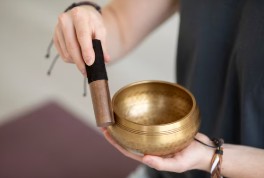
Use sound therapy to promote relaxation and mental clarity. Sound therapy involves using specific sounds and frequencies to enhance well-being, aiding in emotional and cognitive recovery for TBI survivors.
Herbal Supplements Essential Oils
Sound Therapy Color Therapy
Meditation Cognitive Exercises

Use light therapy to improve mood and regulate sleep patterns. Light therapy can help TBI survivors manage sleep disorders, promote better sleep and seasonal affective disorder.
Qigong is a traditional Chinese practice that combines movement, breathing and meditation to improve health, well-being and spiritual awareness. It’s pronounced “chee-gong”.
What it’s used for
Benefits
Types of Qigong
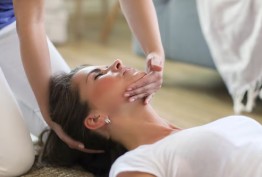
Receive craniosacral therapy to improve the function of the central nervous system. Craniosacral therapy involves gentle manipulation of the skull and spine, supporting nervous system health and recovery from TBI.
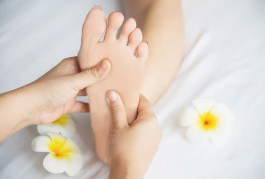
Practice reflexology to stimulate specific points on the feet and hands to promote healing. Reflexology can help TBI survivors improve overall health, well-being, support physical/emotional recovery.lutpat.

Click for Color Therapy
OUR BLOG, THE DAILY DOSE OF POWER – To Inspire, Encourage & Empower You!
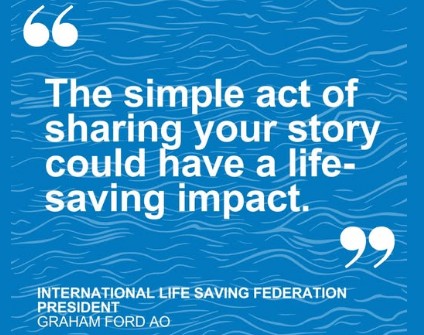
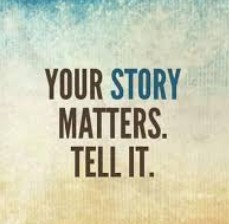
Submit below.
Your words will be received with care.
SUBMIT BUTTON ~ COMING SOON

REFERENCES ~ information on holistic rehabilitation for traumatic brain injury (TBI):
1. Handbook of Holistic Neuropsychological Rehabilitation, Outpatient Rehabilitation of Traumatic Brain Injury
2. Holistic Practice in Traumatic Brain Injury Rehabilitation: Perspectives of Health Practitioners
3. Holistic Brain Injury Rehabilitation